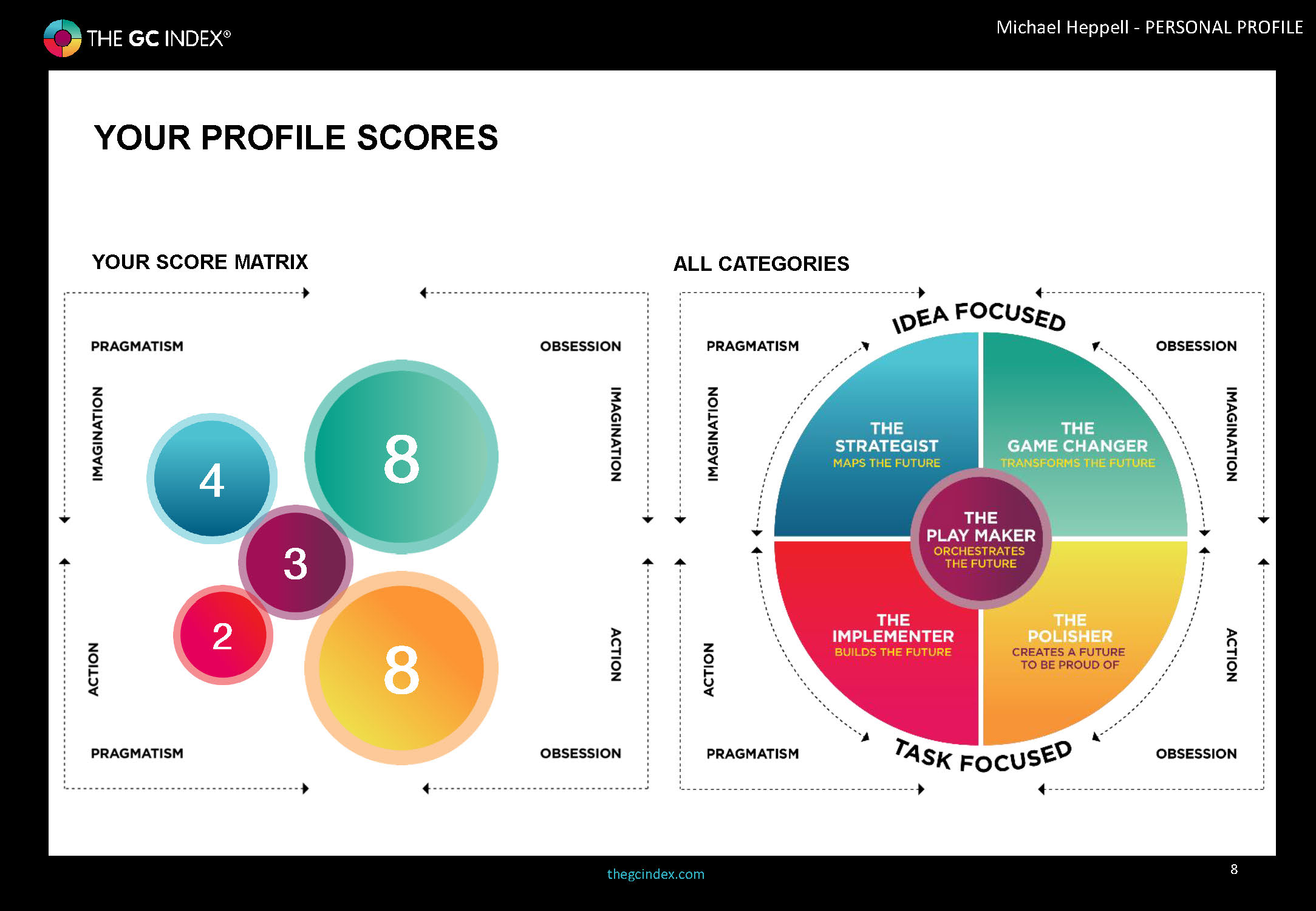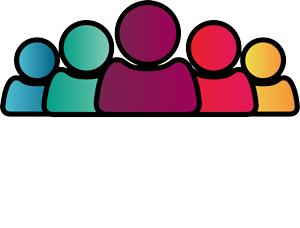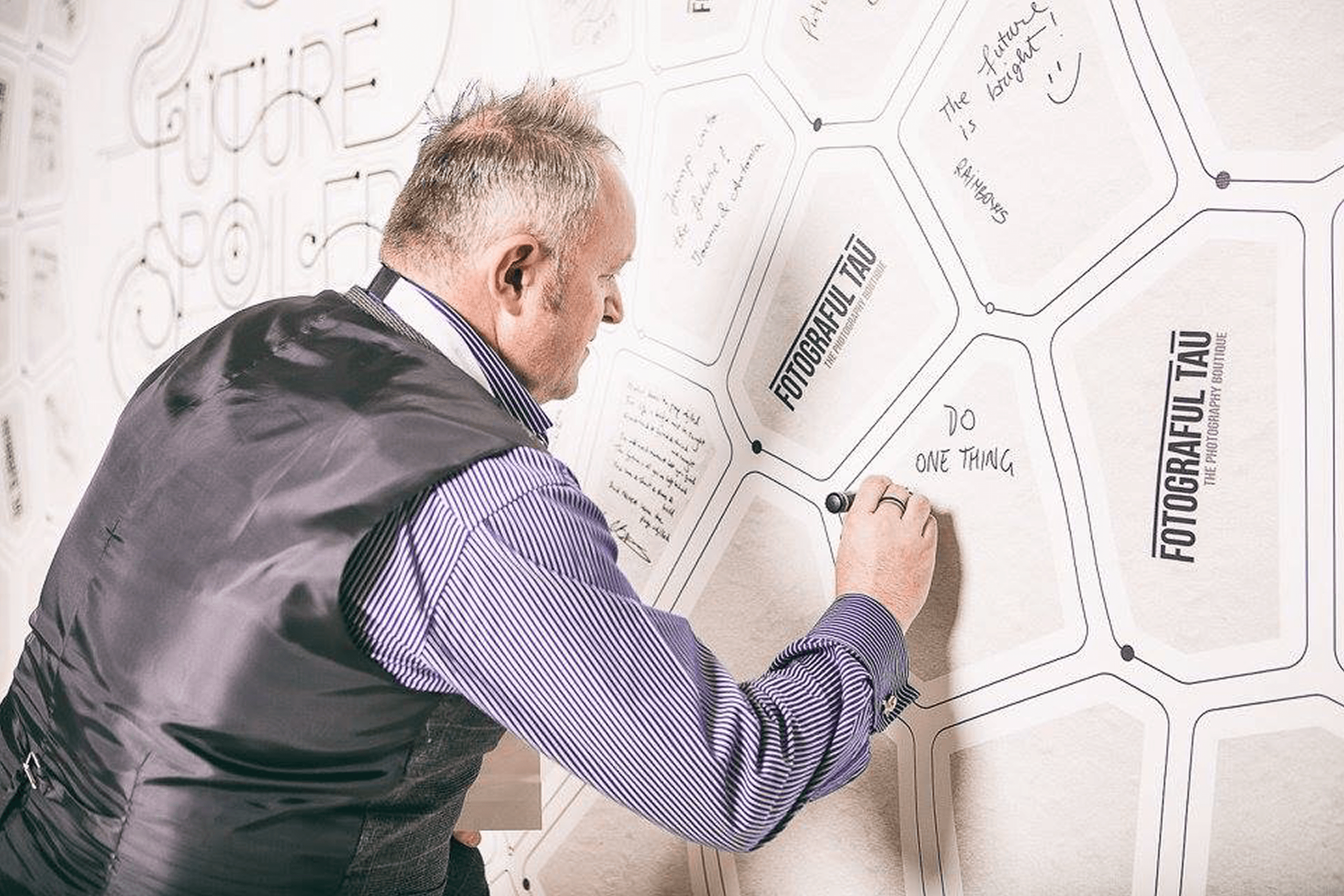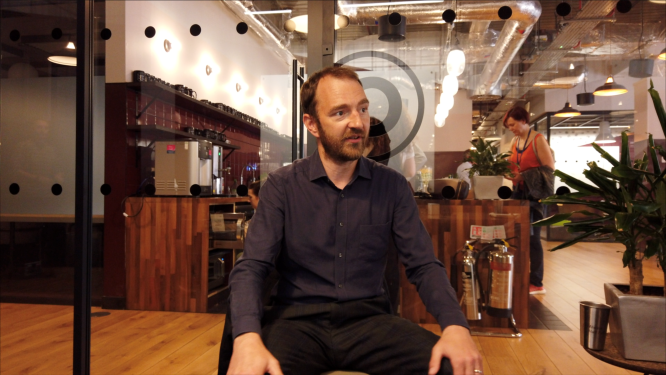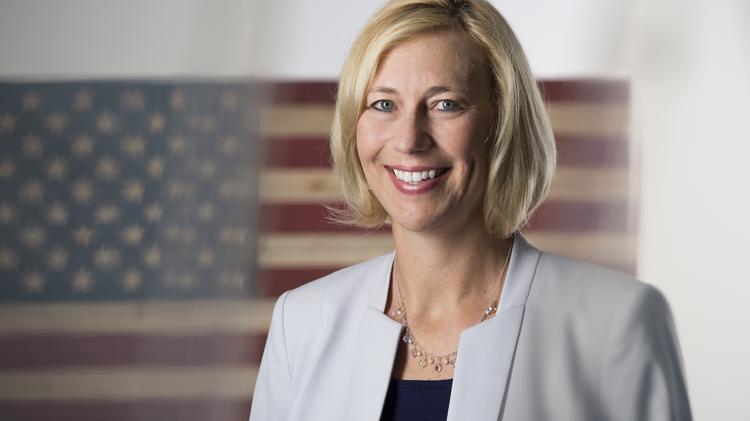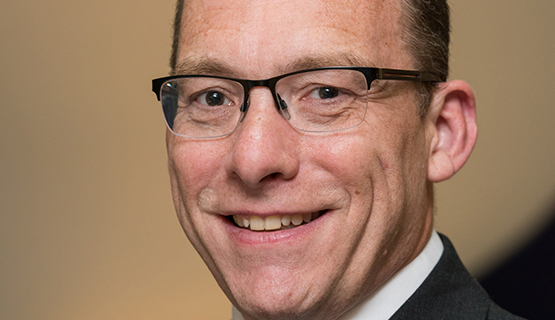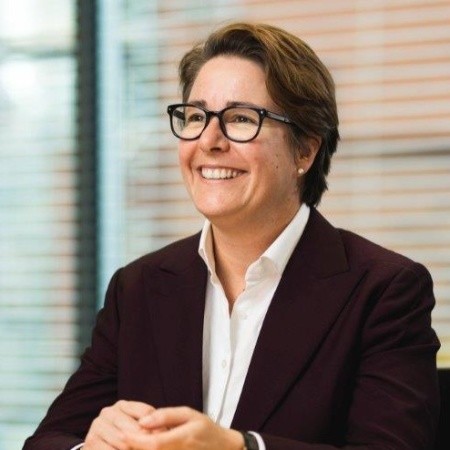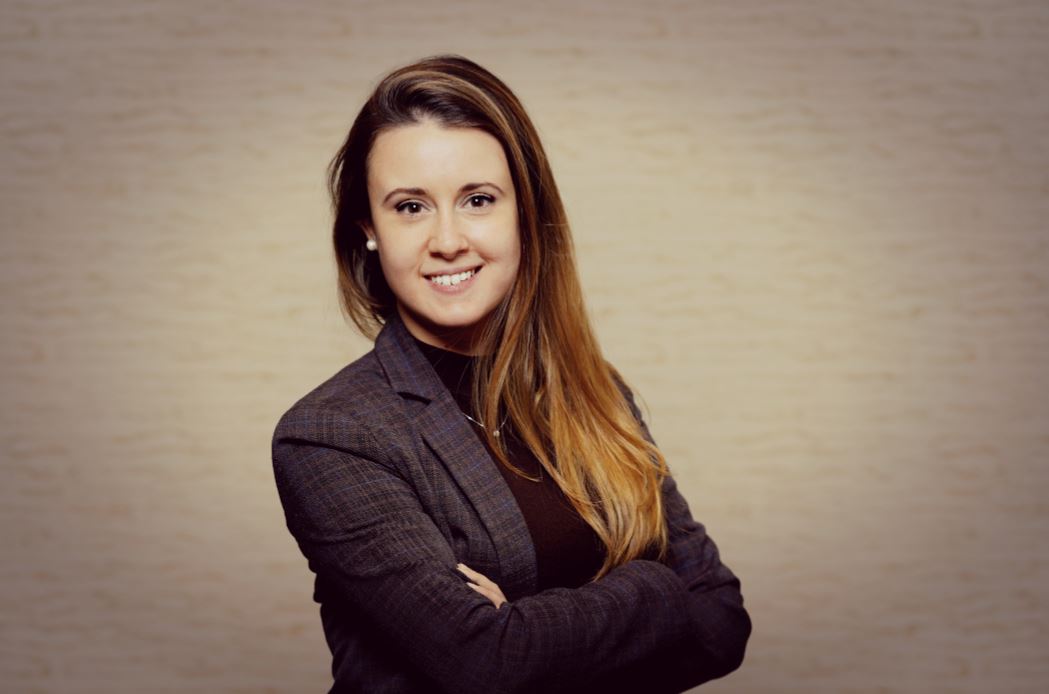
Creator & Founder
Michael Heppell Ltd.
Game Changer/Polisher6-times Sunday Times Best-selling Author, ranked as one of the Top 3 Motivational Speakers globally, and a Coach - Michael’s books and programmes have been highly recommended and sought after. His books include – Flip It, How to be Brilliant, 5 Star Customer Service, The Edge, How to have a Brilliant Life, Save an Hour a Day. Recently he has published a new book “17 – The Little Way to get a lot done”, his first in 8 years.
Michael founded his company 22 years ago, following his passion and enthusiasm to ‘positively impact’ everyone he meets. As a Speaker, Author and Coach, his job is to help people to find out where they are now, where they want help to get to, from there to there, as quickly as possible, as economically as possible, with as much fun as possible.
You’ve clearly had a successful career so far, so what does your GC Index profile tells us about what actually underpins your success? Just before you answer that, it would be really useful to know what success mean to you as it means many different things to different people.
I’m one of these people who commits to something long before I know how I’m going to do it. And that kind of came out from the GC Index. It’s like “I’m in!”, what’s happening and then I’ll work out a way of how I’m going to get there, but I think that’s a classic entrepreneurial trait. A lot of times, my ideas are working faster than I can physically do something, and I catch myself out with that.
I’ll be thinking of ideas, it’s easy for me. I can think of 20 ways to do that when other people have said it will not work. While here I am with 10 different ideas, so let’s do that so I kind of find myself saying ok, we’ll do something. Then when it works, thinking how I can do it even better. So, success in terms of defining success for me, , starting my business I had a very clear definition of what success looked like and that’s evolved, and it’s changed.
I’ll be thinking of ideas, it’s easy for me. I can think of 20 ways to do that when other people have said it will not work. While here I am with 10 different ideas, so let’s do that so I kind of find myself saying ok, we’ll do something. Then when it works, thinking how I can do it even better. So, success in terms of defining success for me, , starting my business I had a very clear definition of what success looked like and that’s evolved, and it’s changed.
So, what was it originally?
It was to positively influence a million lives, that was the goal of the business. We used to make all our decisions based around that goal. We had big letters right across the office and every morning, we had a team meeting I used to say these words – “what are we going to do to add more people to that list?” We measured it and we measured it relentlessly so everybody who saw me live, signed up for our newsletter and everybody who bought the book, anyone who downloaded an audio or bought a CD, as it used to be in those days. Everyone we coached, all those people, every single one was measured and then when we hit the million, it was kind of those things everybody said you’ve done your million, wow, what’s going to be next? 10 million or a billion or whatever? I said, “No I’ve done it”, I don’t want to rebuild, don’t re-stretch your goal for the sake of sake of it. I need something else but what I realised was that my purpose had changed and rather than it being about the numbers and making decisions based on the numbers, it was much more about impact. So, I changed it and now my whole mission is to positively influence everybody who I connect with.
So, us having this conversation today, I would like you to leave feeling positively influenced, and anybody who’s watching this, my job today is that they should get to the end of this interview and say, “I enjoyed that, and I feel a bit more positive because of what Michael and Angie talked about”. So, it’s changed, its evolved and it continues to, that’s my primary thing I’m working on at the moment.
So, us having this conversation today, I would like you to leave feeling positively influenced, and anybody who’s watching this, my job today is that they should get to the end of this interview and say, “I enjoyed that, and I feel a bit more positive because of what Michael and Angie talked about”. So, it’s changed, its evolved and it continues to, that’s my primary thing I’m working on at the moment.
So, your Game Changer then, and the Polisher side of it, clearly is where all your innovative ideas and creative buzz comes from, so you do struggle to keep up with your own idea’s brains working, as it’s working at 2000 miles an hour!
So, here’s the dichotomy, the Polisher element slows me down from doing that, so this is this is a great example, you’ve taught me a brilliant lesson Angie, when you gave me the feedback.
My little hobby is doing video editing, which I really enjoy. I also have a company who does video editing for me and I could just ship it off to them and they will get on and do it. But no, I like to do it but I’m never happy with the results, so I’ll record a zoom meeting and then I’ll put it into Final Cut Pro and start doing edit on it. So that it’s the best possible version that maybe six people will watch, it will take me six hours.
You said to me “Michael, people don’t care, they’re used to watching stuff on Zoom but not used to it having a clever edit and all that type of stuff. Why you are spending six hours doing that for the six people who missed the meeting in the first place, when actually you could do something really quickly. Just put it on there and focus on something else.”
That was one of the brilliant realisations. So as a Polisher, I think everything has to be spot on and it’s not true . You challenged my thinking on that. I’m really pleased you did because the last two that I’ve done took me an hour to do. I put them on and not a single person is come back since to say it’s not as good as your other stuff, nobody else even notices!
My little hobby is doing video editing, which I really enjoy. I also have a company who does video editing for me and I could just ship it off to them and they will get on and do it. But no, I like to do it but I’m never happy with the results, so I’ll record a zoom meeting and then I’ll put it into Final Cut Pro and start doing edit on it. So that it’s the best possible version that maybe six people will watch, it will take me six hours.
You said to me “Michael, people don’t care, they’re used to watching stuff on Zoom but not used to it having a clever edit and all that type of stuff. Why you are spending six hours doing that for the six people who missed the meeting in the first place, when actually you could do something really quickly. Just put it on there and focus on something else.”
That was one of the brilliant realisations. So as a Polisher, I think everything has to be spot on and it’s not true . You challenged my thinking on that. I’m really pleased you did because the last two that I’ve done took me an hour to do. I put them on and not a single person is come back since to say it’s not as good as your other stuff, nobody else even notices!
In fact, I checked the last couple and I would never have known whether you had or hadn’t done the editing! I didn't know you hadn't so I know you got back 10 hours just in 2 two lots of video editing. That's an awful lot of time ! I think with the Polisher, that is one of the aspects you really have to watch because we always want it to be better and better. At what point do you then miss a chance or burn yourself out because you missed another opportunity to do something more lucrative.
I have a friend of mine Paul Mort this wonderful thing saying – “do you want it to be perfect or do you want it to be done?”! I need that as a sticker in my office!
What skills have you had to develop along the way to make the most of these proclivities or your inclinations? What have you had to develop?
Well, I’ve worked with a few coaches, and one of the big things is to learn how to say no. No to opportunity and I have this expression, which is to learn how to say no nicely, and that was a real skill I’ve had to learn.
It is a skill to say no because these opportunities rarely present themselves as “hey would you like…?” normally you get interested in something and then there’s this little bit of opportunity, I’ll have a look at that, I’ll just…. from somebody else and help them out by doing this. I’m a classic person on LinkedIn and I’ll see somebody ask the question and I have a chat with you about it.
That moment, without even being asked, I’ve dived in to help somebody and positively influence, before I know it half an hour of my day has gone so now, I just have to learn to say, “no thank you”. I can’t get involved in that, I can’t fix everybody and that’s a real skill I’ve had to learn over the years.
With the Game Changer elements, what I’ve had to learn there, it’s okay to fail. By the very nature of the fact that you put it out there, things are going to go wrong and will go wrong. It’s just really easy as a coach is to think, you’ve just got to accept it, think of the learning, but actually you feel a bit crappy when things go wrong.
So, for me, journaling is really important, what have I’ve learned? That’s the question, what have I learned today? Writing that down and then looking back even just a week later, what did I learn at that point, what am I doing differently because of that? Asking better questions of myself, it’s really key to this.
Finally, what I’ve learnt with doing interviews. I recently interviewed somebody called Patrick Kielty, the comedian when I was doing these interviews for Team 17. He said his valuable life lesson these words that really stuck with me – “No one cares, you mess it up Michael, no one cares if you haven’t quite done your idea, it wasn’t big enough or grand enough, or you weren’t able to do something, then you focus on something else. If you missed an opportunity or whatever, no one cares it’s just the story you’re telling yourself, usually with some ridiculous story that’s going on up there, that’s what makes a difference” So we would like to think that we’re good at this stuff, but I think the reality is, it’s a constant flux, it’s constant development. Constantly needing to be reminded of it.
It is a skill to say no because these opportunities rarely present themselves as “hey would you like…?” normally you get interested in something and then there’s this little bit of opportunity, I’ll have a look at that, I’ll just…. from somebody else and help them out by doing this. I’m a classic person on LinkedIn and I’ll see somebody ask the question and I have a chat with you about it.
That moment, without even being asked, I’ve dived in to help somebody and positively influence, before I know it half an hour of my day has gone so now, I just have to learn to say, “no thank you”. I can’t get involved in that, I can’t fix everybody and that’s a real skill I’ve had to learn over the years.
With the Game Changer elements, what I’ve had to learn there, it’s okay to fail. By the very nature of the fact that you put it out there, things are going to go wrong and will go wrong. It’s just really easy as a coach is to think, you’ve just got to accept it, think of the learning, but actually you feel a bit crappy when things go wrong.
So, for me, journaling is really important, what have I’ve learned? That’s the question, what have I learned today? Writing that down and then looking back even just a week later, what did I learn at that point, what am I doing differently because of that? Asking better questions of myself, it’s really key to this.
Finally, what I’ve learnt with doing interviews. I recently interviewed somebody called Patrick Kielty, the comedian when I was doing these interviews for Team 17. He said his valuable life lesson these words that really stuck with me – “No one cares, you mess it up Michael, no one cares if you haven’t quite done your idea, it wasn’t big enough or grand enough, or you weren’t able to do something, then you focus on something else. If you missed an opportunity or whatever, no one cares it’s just the story you’re telling yourself, usually with some ridiculous story that’s going on up there, that’s what makes a difference” So we would like to think that we’re good at this stuff, but I think the reality is, it’s a constant flux, it’s constant development. Constantly needing to be reminded of it.
So, in your career when have you felt that your role was most in tune with your proclivities, with your inclinations?
Probably before my main career, starting out myself. I was a roofer, when I left school, and started working for my dad. That was literally, do it this way, you can’t do it your way, to get that result, you can’t just do whatever. I’m very creative so got very dissatisfied with progress. So, with my dad, I started working in the office for a while, and I did my apprenticeship, became a team leader, then went to work in the office and I had all these ideas for my dad, we should do this one, if we did that, what if we did this well, and we did that? Anyway, nothing ever landed so I got an opportunity to take one year out to be a Youth Worker and to do a project with the National Garden Festival to look after the charity involvement on site. I was allowed to be creative, and I was encouraged to be creative. I call Alan Percival my first real mentor and after that my dad knew I was never going back to that.
And I then joined as Marketing Manager for a Youth Centre. Again, an opportunity to be creative, setting up things, flipping things, all sorts of stuff, but then the real big opportunity came when we started working for a charity in the North East of England called the Yellow Brick Road appeal.
I’ve never worked as hard in my life as I worked for that charity. We raised £12,000,000 in three years in the North of England for child health and every single day was an opportunity to be creative. To do something to push it out there, that’s where I learned how to speak because I was standing on stage and talking about the charity. I used to do four speaking engagements a day.
That that was probably the time, other than when I first started the business, and I was rubbish at running business. I didn’t realise how bad I would be until I started, and I believed everybody, so all these people who said if you start your own company, we’ll book you, liars!
I then realised I couldn’t just make my money doing personal development training. I had to do other things, so I set up 4 businesses within my business and we used to do event.
management, video production, all sorts. I sold the video production company, but the work on event management was really difficult.
We got to the point where we just got one of those pdq machines from the bank so you can sort people’s credit cards over the phone. We used to do a course and people would ask if they could pay by credit card. We used to say no, we have to invoice you, then for individuals it was a faff. So, with one of these machines, the phone rang, and somebody went “hi I’d like to order a bouquet for about 25 pounds and the delivery address is …… “I was that close to saying, “we’re not a florist”, but the delivery address was only two streets from where I was living at that moment. There was a florist just down the road, so I took the order! I actually took it, put 25 pounds through on the machine went to the florist for £15 worth of flowers, walked up the street, delivered them to this person and I thought, brilliant I’ve made a tenner.
That was my mindset at that point, whatever it would take, I would get a sale doing something, obviously things change. But the idea of saying no to something and missing an opportunity was completely alien. I’m thinking that point there, that was when I was in Game Changer mode, totally. Whatever it takes I’ll find a way to do it.
At that point, I was also desperate. It was one of those things. My first year in business my company turned over less than £12,000 turnover, never mind paying me, or getting someone in to help, or having an office space or anything like that.
I used to have this desk set up…. A quick back story, I used to work for somebody else, who owned their own personal development business in Glasgow. I’d been there for two years and ended up learning a lot about personal development and the fact there are a lot of interesting people, let’s call them that and I was working for 2 of them.
My values just couldn’t keep me there any longer so that’s when I decided to start my own business. We lost a lot of money on two houses because we moved at the wrong times, and other types of stuff happened. So, we’re in a rented terraced house, overlooking a supermarket car park, next door to a nightclub, in Hexham in Northumberland. It was interesting because until that point I didn’t have a hard luck story! Everyone in personal development, has these stories, you know the sort, of being dragged up in a council house, no, I just didn’t grow up in a council house, I grew up in a bin….!!! Everybody has these terrible stories. So, it wasn’t like that for me – mine was like a nice middle-class upbringing, lovely parents who really cared about me, all that with lots of opportunity all that type of stuff…. Anyway, but this was really tough. It was in that tough time.
I was desperate and I had this a tiny-like Bureau desk about a metre wide in a corridor, as soon as you opened the front door that was my office. I had a bit of a dodgy computer and a mate of mine, a guy called Ray Cranston, he dropped me off as I didn’t have a car, I used to borrow cars and things. He dropped me off from being out and doing something and I opened the door, and I went “Oh Ray, that’s the office by the way”. And he did this, (made a gesture of a camera), but what he was saying was take a picture of that.
I didn’t. I wish I had because you know how Jeff Bezos has got the table made out of a door on A frames with Amazon sign behind it in his office. I don’t have that shot I’ve got when we first started in our office and that type of thing, but I thought “that’s interesting”. At that time when I was desperate, what was I doing? why was I making those decisions? and it was because I just hadn’t set myself up for success.
And I then joined as Marketing Manager for a Youth Centre. Again, an opportunity to be creative, setting up things, flipping things, all sorts of stuff, but then the real big opportunity came when we started working for a charity in the North East of England called the Yellow Brick Road appeal.
I’ve never worked as hard in my life as I worked for that charity. We raised £12,000,000 in three years in the North of England for child health and every single day was an opportunity to be creative. To do something to push it out there, that’s where I learned how to speak because I was standing on stage and talking about the charity. I used to do four speaking engagements a day.
That that was probably the time, other than when I first started the business, and I was rubbish at running business. I didn’t realise how bad I would be until I started, and I believed everybody, so all these people who said if you start your own company, we’ll book you, liars!
I then realised I couldn’t just make my money doing personal development training. I had to do other things, so I set up 4 businesses within my business and we used to do event.
management, video production, all sorts. I sold the video production company, but the work on event management was really difficult.
We got to the point where we just got one of those pdq machines from the bank so you can sort people’s credit cards over the phone. We used to do a course and people would ask if they could pay by credit card. We used to say no, we have to invoice you, then for individuals it was a faff. So, with one of these machines, the phone rang, and somebody went “hi I’d like to order a bouquet for about 25 pounds and the delivery address is …… “I was that close to saying, “we’re not a florist”, but the delivery address was only two streets from where I was living at that moment. There was a florist just down the road, so I took the order! I actually took it, put 25 pounds through on the machine went to the florist for £15 worth of flowers, walked up the street, delivered them to this person and I thought, brilliant I’ve made a tenner.
That was my mindset at that point, whatever it would take, I would get a sale doing something, obviously things change. But the idea of saying no to something and missing an opportunity was completely alien. I’m thinking that point there, that was when I was in Game Changer mode, totally. Whatever it takes I’ll find a way to do it.
At that point, I was also desperate. It was one of those things. My first year in business my company turned over less than £12,000 turnover, never mind paying me, or getting someone in to help, or having an office space or anything like that.
I used to have this desk set up…. A quick back story, I used to work for somebody else, who owned their own personal development business in Glasgow. I’d been there for two years and ended up learning a lot about personal development and the fact there are a lot of interesting people, let’s call them that and I was working for 2 of them.
My values just couldn’t keep me there any longer so that’s when I decided to start my own business. We lost a lot of money on two houses because we moved at the wrong times, and other types of stuff happened. So, we’re in a rented terraced house, overlooking a supermarket car park, next door to a nightclub, in Hexham in Northumberland. It was interesting because until that point I didn’t have a hard luck story! Everyone in personal development, has these stories, you know the sort, of being dragged up in a council house, no, I just didn’t grow up in a council house, I grew up in a bin….!!! Everybody has these terrible stories. So, it wasn’t like that for me – mine was like a nice middle-class upbringing, lovely parents who really cared about me, all that with lots of opportunity all that type of stuff…. Anyway, but this was really tough. It was in that tough time.
I was desperate and I had this a tiny-like Bureau desk about a metre wide in a corridor, as soon as you opened the front door that was my office. I had a bit of a dodgy computer and a mate of mine, a guy called Ray Cranston, he dropped me off as I didn’t have a car, I used to borrow cars and things. He dropped me off from being out and doing something and I opened the door, and I went “Oh Ray, that’s the office by the way”. And he did this, (made a gesture of a camera), but what he was saying was take a picture of that.
I didn’t. I wish I had because you know how Jeff Bezos has got the table made out of a door on A frames with Amazon sign behind it in his office. I don’t have that shot I’ve got when we first started in our office and that type of thing, but I thought “that’s interesting”. At that time when I was desperate, what was I doing? why was I making those decisions? and it was because I just hadn’t set myself up for success.
So, during your career, whether employed or self-employed, what about when your role was least in tune with your proclivities and clearly very different when your inclinations are perhaps not met for varying reasons? When has that happened in the past?
Obviously when I was a roofer, as a Polisher I wanted to do a good job, but I think the real time would be when I sold my company and became a partner in a bigger training business. So, I was persuaded by a very tactful entrepreneur, that the best way for me to build my business was to sell it into this group and for me to become a director and shareholder of this training group. I did that, I was very much a minority shareholder, I only owned 12% of the business. I did a lot of the work. We employed 70 people, we did every type of training you could imagine, and it was a machine. It was an absolute machine, so a lot of it was bidding for government grants, we did health and safety training, we did leadership training, we owned an outward-bound centre in the Lake District. We did CAD training computer aided develop design, we did any type at all and then in the middle of it I would get a chance to do a bit of my “How to be brilliant” or a bit of my “How to be a super speaker”, and these other things that I really loved.
But because I had this job to be a “director”, very important and you know all that type of stuff, and because we were looking to build a business for exit. Oh, I remember those times and I basically bought into the corporate world. I was the person who was driving 50 minutes commute every morning and every night, sitting in the traffic. It was a big deal to be in by 8:00 o’clock, you know you got to be in by 8:00 o’clock, that shows that you’re committed. With the other two guys, they were very masculine in their approach to stuff, very very Alpha. I can be quite feminine with stuff and that was almost frowned upon, and emotional intelligence for the staff. You’ve got these 70 people and you know; we just knew that the majority of them didn’t care about us. The Christmas party, it was more about how much can you get out of the directors, how much can we drink tonight, rather than having a great time. It was really difficult.
So, I was given a choice. I talked to the guy who had the main shares, he told me obviously you do the vast majority of the presenting and you’ve become the front of the organisation and other type of stuff, so I think that you should buy me out and you should buy out the other guy too. Why don’t you look at doing a takeover of the business? I was like alright okay how much you are thinking about, and he told me a number and I was oh wow OK that’s interesting. I own 12%, that’s pretty good and then I went to HSBC to talk about the money and I had a great relationship with HSBC at that time as I’d trained all of their staff in the North East, so they all knew me.
The guy who was the director for our area looked at the numbers and he came back saying, first of all, the business is massively over-valued, so you would never pay that for it. Secondly, the most valuable part of the business is you! People pay more for Michael Heppell courses that anything else. This other stuff is high turnover low margin, your stuff is very, very high margin. Your speaking engagements are great, your “How to be Brilliant” courses are great, the main programmes called Talent Engine, is all about you, so I don’t think you should be buying them. You should be selling you and going back to starting Michael Heppell Ltd. Guess what happened? Suddenly the value of the business when I was selling my bit went right down and we lost a lot of money in the whole thing so to come out, to just be given shares, never given cash, the price of my share was (gesture large to buy it) and that much (gesture small) when I came to sell it. So, it was remortgage the house, buy my own name! I had to buy “Michael Heppell”. One of the clever things that they did when I moved into the business, we then Copyrighted everything, and we put everything into IP. This belonged to the company, not me. It was like you know when bands sign a dodgy deal with a music company, then I went independent again and I’ve never been happier.
But because I had this job to be a “director”, very important and you know all that type of stuff, and because we were looking to build a business for exit. Oh, I remember those times and I basically bought into the corporate world. I was the person who was driving 50 minutes commute every morning and every night, sitting in the traffic. It was a big deal to be in by 8:00 o’clock, you know you got to be in by 8:00 o’clock, that shows that you’re committed. With the other two guys, they were very masculine in their approach to stuff, very very Alpha. I can be quite feminine with stuff and that was almost frowned upon, and emotional intelligence for the staff. You’ve got these 70 people and you know; we just knew that the majority of them didn’t care about us. The Christmas party, it was more about how much can you get out of the directors, how much can we drink tonight, rather than having a great time. It was really difficult.
So, I was given a choice. I talked to the guy who had the main shares, he told me obviously you do the vast majority of the presenting and you’ve become the front of the organisation and other type of stuff, so I think that you should buy me out and you should buy out the other guy too. Why don’t you look at doing a takeover of the business? I was like alright okay how much you are thinking about, and he told me a number and I was oh wow OK that’s interesting. I own 12%, that’s pretty good and then I went to HSBC to talk about the money and I had a great relationship with HSBC at that time as I’d trained all of their staff in the North East, so they all knew me.
The guy who was the director for our area looked at the numbers and he came back saying, first of all, the business is massively over-valued, so you would never pay that for it. Secondly, the most valuable part of the business is you! People pay more for Michael Heppell courses that anything else. This other stuff is high turnover low margin, your stuff is very, very high margin. Your speaking engagements are great, your “How to be Brilliant” courses are great, the main programmes called Talent Engine, is all about you, so I don’t think you should be buying them. You should be selling you and going back to starting Michael Heppell Ltd. Guess what happened? Suddenly the value of the business when I was selling my bit went right down and we lost a lot of money in the whole thing so to come out, to just be given shares, never given cash, the price of my share was (gesture large to buy it) and that much (gesture small) when I came to sell it. So, it was remortgage the house, buy my own name! I had to buy “Michael Heppell”. One of the clever things that they did when I moved into the business, we then Copyrighted everything, and we put everything into IP. This belonged to the company, not me. It was like you know when bands sign a dodgy deal with a music company, then I went independent again and I’ve never been happier.
So finally, a question to ask you which you think is a fascinating question especially as a Game Changer to a Game Changer as well so who do you like to have around you? So, people who compliment your proclivities and then get the best from you so who are those people, those teams around you, that help you where it just fits?
I like really bright people. How that they really brighten anything. Even if it’s not something I’m interested in, it’s just the fact that they are really bright. I’m fascinated by them! For example, my next-door neighbour, Gavin, who’s one of my best friends, has a brain the size of a small planet, and he just knows so much about so much. He’s got an engineering mind, and is a computer technician, trained and great vision with how stuff works. One of those people, you ask a question and rather than answer, he goes… (looks upwards reflective pose) and that’s so good. Hanging out with people like that is so great.
And also, really great clients who stretch me. I know that I could do keynotes in this box here all the time (indicating the Zoom screen). I want the person who comes to me and says, “we’d like a keynote, but could you do it on….?” and they give me something else to think about. Something that’s different, that challenge and I’m thinking, that’s good. Here’s why would like it, and here’s what we would like, and here is the outcome that we want from it.
I love being challenged like that, which is great.
At the moment we’ve just started to do some work with our daughter. She’s very, very bright. She’s in marketing, she’s been furloughed so she’s come to do a couple months with mum and dad. She is so creative and so on it and so brilliant with the new, using social in particular and I’m fascinated by that.
So, she’s great, and then also my wife Christine. I work with my wife. One of the things we did was to get a coach to show us how to work together, because Christine said, if we were going to work together, this is how it needs to work.
So, we set up some parameters. I get final decision on everything to do with the business and Christine gets final decision on everything else, that’s the deal. At home and with family and investments and where we go on holiday, and all that type of stuff, Christine has the final decision on that. Of course, we can talk about things but if she decides we’re actually going on this date and that’ what’s happening, fine. When it comes to business stuff, I’ll take to Christine about it, but I’ll make a final decision on it.
Last, but by no means least, Vanessa, is the person, … she’s like the Gordon Brown to my being a Tony Blair. You know, I’ll be like “boom, boom, boom, we’re doing education, education, education!” and she’s going, ok, let’s make sure the finances are done, make sure the bills are paid, make sure that we’ve contacted clients if you’ve got an event coming up. Have a nice chat with them so if they ring, there’s no big panic, no problem she will sort that out.
She’s just so calm. Just like constantly this thing, and when we used to go to speaking events (which we can’t do at the moment), and we used to do a lot of them, the number one comment we would get from people, is Vanessa is absolutely brilliant, they’d tell you Vanessa is brilliant, and we got that all the time.
It was just lovely, that people wanted to tell us. Not just a comment of “everything is great”, but how Vanessa was really good. They’re putting it out there so having those people now, and we have four out of the group that we were in.
We had nine staff and my first question every Monday morning, was “how are we going to pay 9 mortgages this week?” One day we were on holiday Christine and I, we were hiking in the Yorkshire Dales, and at breakfast we used to ask a question and then, by the end of the day we had to answer the question. Christine would think of a question usually. One day, the question was “how much is enough?” That’s a really great question. “How much is enough?” All day we talked about how much we needed financially, how many people do you want in your life, where do you want to go, where do you want to live, what size house do you need, what type of car did we need? All that type of stuff. Then supper that night, with our pudding, we had to have answered the question. And the answer was – “Enough is what we have right now, we don’t need anything else”.
The next day, the question was – “if we were coaching ourselves, what would we recommend?” And I know real coaches don’t recommend, but I’m not a real coach. I often recommend. We said, what we would do, is we would reduce the size of our company and work a lot less. So, we reduced the company to 3 of us, and the other 7 people, it was brilliant, they all got great other jobs. One of them, our finance person, she wanted to retire but didn’t want to tell us that she wanted to retire in case she let us down! Really, she wants to retire that’s brilliant, wonderful loyalty to us. Our top salesperson, she’d just got a new relationship, and her new partner who became a husband, wanted her to work for him. She said I can’t do it, I’m loyal to Michael and Christine, so I can’t do it. So, she was able to go, oh I can go and work for him. So that was brilliant. Everybody ended up doing great things because of us making that decision. The only thing I didn’t change, was so we could work less! I probably work more now that I ever have!
And also, really great clients who stretch me. I know that I could do keynotes in this box here all the time (indicating the Zoom screen). I want the person who comes to me and says, “we’d like a keynote, but could you do it on….?” and they give me something else to think about. Something that’s different, that challenge and I’m thinking, that’s good. Here’s why would like it, and here’s what we would like, and here is the outcome that we want from it.
I love being challenged like that, which is great.
At the moment we’ve just started to do some work with our daughter. She’s very, very bright. She’s in marketing, she’s been furloughed so she’s come to do a couple months with mum and dad. She is so creative and so on it and so brilliant with the new, using social in particular and I’m fascinated by that.
So, she’s great, and then also my wife Christine. I work with my wife. One of the things we did was to get a coach to show us how to work together, because Christine said, if we were going to work together, this is how it needs to work.
So, we set up some parameters. I get final decision on everything to do with the business and Christine gets final decision on everything else, that’s the deal. At home and with family and investments and where we go on holiday, and all that type of stuff, Christine has the final decision on that. Of course, we can talk about things but if she decides we’re actually going on this date and that’ what’s happening, fine. When it comes to business stuff, I’ll take to Christine about it, but I’ll make a final decision on it.
Last, but by no means least, Vanessa, is the person, … she’s like the Gordon Brown to my being a Tony Blair. You know, I’ll be like “boom, boom, boom, we’re doing education, education, education!” and she’s going, ok, let’s make sure the finances are done, make sure the bills are paid, make sure that we’ve contacted clients if you’ve got an event coming up. Have a nice chat with them so if they ring, there’s no big panic, no problem she will sort that out.
She’s just so calm. Just like constantly this thing, and when we used to go to speaking events (which we can’t do at the moment), and we used to do a lot of them, the number one comment we would get from people, is Vanessa is absolutely brilliant, they’d tell you Vanessa is brilliant, and we got that all the time.
It was just lovely, that people wanted to tell us. Not just a comment of “everything is great”, but how Vanessa was really good. They’re putting it out there so having those people now, and we have four out of the group that we were in.
We had nine staff and my first question every Monday morning, was “how are we going to pay 9 mortgages this week?” One day we were on holiday Christine and I, we were hiking in the Yorkshire Dales, and at breakfast we used to ask a question and then, by the end of the day we had to answer the question. Christine would think of a question usually. One day, the question was “how much is enough?” That’s a really great question. “How much is enough?” All day we talked about how much we needed financially, how many people do you want in your life, where do you want to go, where do you want to live, what size house do you need, what type of car did we need? All that type of stuff. Then supper that night, with our pudding, we had to have answered the question. And the answer was – “Enough is what we have right now, we don’t need anything else”.
The next day, the question was – “if we were coaching ourselves, what would we recommend?” And I know real coaches don’t recommend, but I’m not a real coach. I often recommend. We said, what we would do, is we would reduce the size of our company and work a lot less. So, we reduced the company to 3 of us, and the other 7 people, it was brilliant, they all got great other jobs. One of them, our finance person, she wanted to retire but didn’t want to tell us that she wanted to retire in case she let us down! Really, she wants to retire that’s brilliant, wonderful loyalty to us. Our top salesperson, she’d just got a new relationship, and her new partner who became a husband, wanted her to work for him. She said I can’t do it, I’m loyal to Michael and Christine, so I can’t do it. So, she was able to go, oh I can go and work for him. So that was brilliant. Everybody ended up doing great things because of us making that decision. The only thing I didn’t change, was so we could work less! I probably work more now that I ever have!
Interviewed by – Evolution4Business

